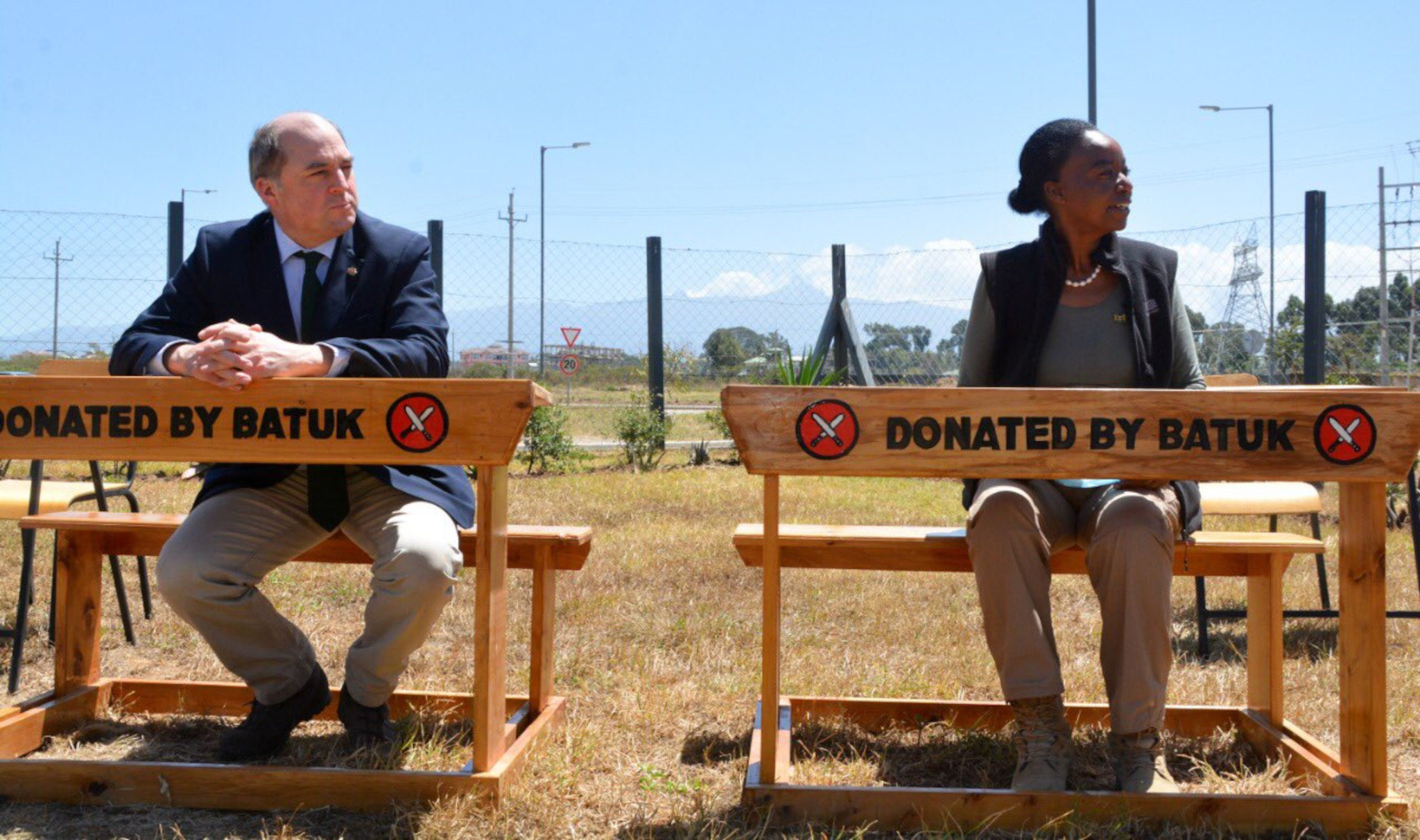Britain’s army headquarters in Kenya destroyed “the majority of physical files” created before 2015, it has emerged.
The Ministry of Defence made the admission in response to a freedom of information (FOI) request about live firing by troops training in Kenya.
Lisoka Lesasuyan, a 13-year-old Kenyan boy, lost both arms and an eye when in November 2015 he picked up a discarded mortar fuze, likely to have come from a British army exercise.
The FOI request by Declassified sought records of any safety concerns about the ammunition and firing range in the years leading up to the accident which maimed Lesasuyan – to see if it could have been prevented.
Army staff said in response: “In 2015, HQ BATUK moved locations, which has led to the destruction of the majority of physical files from before this time and no digital copies of the requested material have been located.”
The headquarters was moved to Laikipia Air Base East, a former RAF station, as part of a £70 million development. The destruction of files took place between 2017-19.
‘Difficult to believe’
Lesasuyan’s life-changing injuries are just one incident in a catalogue of complaints against the vast British base in East Africa (known as BATUK) that have arisen over the last decade.
Other allegations include bush fires, drug taking, racism, sexual abuse and the 2012 murder of local woman Agnes Wanjiru.
Kenyan authorities have sought to extradite soldiers from Britain suspected of murdering Wanjiru, a sex worker, and dumping her body in a hotel septic tank.
Tessa Gregory, a lawyer representing the Wanjiru family, told Declassified: “It is clearly a matter of great concern if physical records which may relate to serious alleged offences have been destroyed and copies have not been kept.
“Record keeping is an important part of accountability and transparency.”
Otsieno Namwaya, East Africa Director at Human Rights Watch, commented: “In the face of the numerous allegations of abuses facing the British military in Kenya, it is almost difficult to believe such crucial files could have been erased by mistake.
“It feels like a deliberate and shocking attempt to obstruct justice for the growing number of Kenyan victims of abuses by the British military.
“Rather than seek to conceal or destroy evidence, the British authorities should be facilitating investigations into these allegations.”
Public Records Act
Destruction of the papers could be in breach of the Public Records Act, an important transparency law.
Government departments are legally required to preserve historically significant files for 20 years and then release them at the National Archives.
However, the Ministry of Defence (MOD) operates a policy that only requires range safety reports to be kept for five years after creation, because the department does not consider them as being worthy of permanent preservation.
It said that an independent safety inspection of firing ranges in Kenya and reports from clear up exercises in the years before Lesasuyan’s accident could not be found.
The ranges, which are not fenced off from the public, are known by the army to be “frequented by farmers, villagers and nomadic tribes-people,” creating a risk of injury and compensation claims.
Between 2002 and 2004, the MOD paid out millions of pounds to hundreds of Maasai and Samburu herders injured by unexploded weaponry fired by British troops.
Some of their claims stretched back decades. Destroying safety reports after five years will make it harder for local Kenyans to seek redress.
Operation Legacy
The destruction took place despite the government publicly showing contrition for shredding or hiding historical records about older, colonial-era abuse by British forces in Kenya.
In 2011, the Foreign Office appointed a Cambridge University historian, Professor Tony Badger, to independently address issues with its archive management.
Badger’s appointment came after the department was sued by Kenyans tortured during the 1950s Mau Mau uprising against the British empire, in a court case stymied by disclosure issues.
Under Operation Legacy, colonial administrators burnt, shredded or sunk thousands of records at the end of Empire to prevent incriminating paperwork falling into the hands of post-independence rulers.
The deliberate loss of more recent records from Kenya suggests Whitehall failed to reform and has continued to destroy files on controversial military activity in East Africa.
Kelvin Kubai, a Kenyan lawyer representing victims of British army activities, told Declassified: “I feel the MOD has made a deliberate attempt to try to conceal certain information, especially after the Mau Mau and Maasai/Samburu court cases, so more claims are not brought against them.
“Five years is such a short duration of time to destroy files that could be used by victims. I’m aware of 150 people who claim they were injured by unexploded ordnance between 2004 and 2015. It will now be much harder to get substantial records to raise their cases in court.”
An Army spokesperson said: “The Army reviews its records in accordance with legal and statutory obligations under the Public Records, Data Protection and Freedom of Information Acts.
“Once the need to keep records for business, regulatory or legislative purposes has passed, the records are disposed of either by destruction, transfer to The National Archives or gifting to another organisation.”




